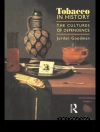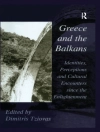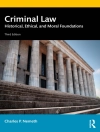What's the difference between an anthill and a city?Protection from weather and predators, living and working quarters, transportation networks, food storage capability—all these they hold in common. And while there are obvious differences between humans and ants, both exist in the same space and time dimension—in nature. This simple idea, imagining cities as part of the larger physical world, has driven the work of the historian Martin Melosi for twenty-five years. Melosi is one of a handful of scholars who examine urban history from an ecological perspective, using the city to help define the place of nature in human life. Cities, he maintains, are places where humans live, work, play, consume goods, and make waste—just as humans have in caves, on farms, and in villages. To imagine the city as outside of nature limits what can be known about our past, and our future. <i>Effluent America</i> is a collection of essays spanning this innovative scholar's career and the growing field of urban environmental history. Garbage, wastewater, hazardous waste: these are the lenses through which Melosi views nineteenth- and twentieth-century America. In broad overviews and specific case studies, </i>Effluent America</i> treats the relationship between industrial expansion and urban growth from an ecological perspective. He charts the development of city services, the rationale for their implementation, and how they affected growth. He explores the environmental impacts of unprecedented methods of production, the influence of new forms of energy, and changing patterns of consumption during the Industrial Revolution and beyond. In so doing, he traces how one of the richest nations in the world became also the most wasteful, a juxtaposition of affluence and effluence. Other essays consider the important role of American cities in the history of the conservation and environmental movements. Melosi sketches the reforms and reformers, born out of such urban "quality of life" issues as pollution, sanitation, public health, and the need for greenspace. He also profiles the environmental justice movement, whose response to environmental problems is a question—Who bears the most risk?Urban environmental history is a window on the past, but it also directly informs issues of the present: public health, pollution, the role of government in delivering services, etc. <i>Effluent America</i> is an important volume for students of history and urban affairs, as well as for policymakers and all those concerned about the one world we inhabit.
关于作者
<b>Martin V. Melosi</b> is Hugh Roy and Lillie Cranz Cullen University Professor and founding director of the Center for Public History at the University of Houston. Melosi received the Distinguished Research Award and the Distinguished Service Award from the American Society for Environmental History (ASEH), and the Esther Farfel Award from the University of Houston. He has served as president of the ASEH, the National Council on Public History, the Public Works Historical Society, and the Urban History Association. Melosi has written or edited nineteen books, including the award-winning <i>The Sanitary City</i>, and most recently, <i>Atomic Age America.</i>












